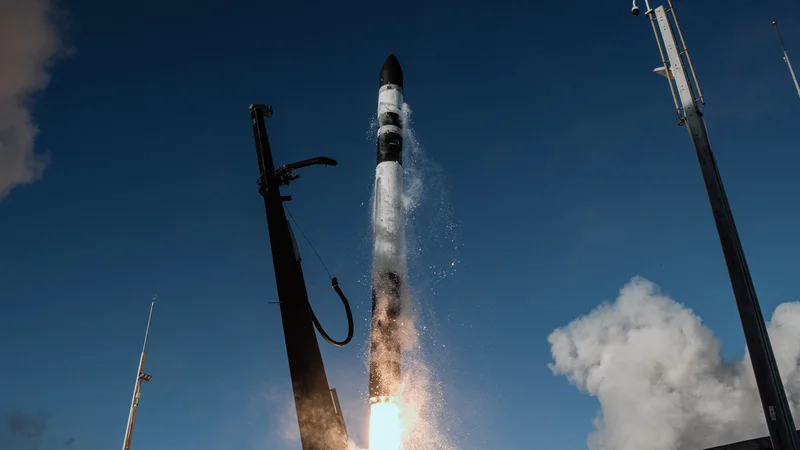Rocket Launch Today: What Happened?
SpaceX's Double Launch: A Glimpse into Our Hyper-Connected Future
Okay, folks, buckle up, because this week SpaceX didn’t just launch rockets—they launched a vision of the future hurtling towards us faster than ever before. We’re talking about a double dose of Falcon 9 action, one carrying 29 Starlink satellites from Kennedy Space Center, and another deploying the Sentinel-6B weather satellite from Vandenberg Space Force Base in California. Two launches, practically back-to-back, showcasing not just SpaceX’s impressive operational tempo, but something far more profound.
What's the big deal? Well, it's not just about getting satellites into orbit. It's about the democratization of space, about making access to the cosmos routine, almost mundane. Remember when air travel was a luxury only the elite could afford? Now, we hop on planes like it's nothing. That's the trajectory SpaceX is forging for space travel, and the implications are staggering.
The Dawn of Routine Space Access
Let's break down the Starlink launch first. Twenty-nine more satellites joining the constellation, blanketing the Earth with high-speed internet. Think about that for a second. High-speed internet anywhere. No more dead zones, no more struggling to connect in remote areas. Imagine the possibilities for education, for telemedicine, for disaster relief. This isn't just incremental progress; it's a quantum leap in global connectivity. SpaceX even managed to stick the landing of booster B1092 for an eighth time on the drone ship "A Shortfall of Gravitas"—the 132nd landing on that vessel alone. It’s not just about getting up there, but about bringing it back, making it sustainable. SpaceX launches 29 Starlink satellites on Falcon 9 rocket from NASA’s Kennedy Space Center – Spaceflight Now
Then, just a day later, we had the Sentinel-6B launch. This one's a bit different, a government-contracted mission to deliver a weather satellite into orbit. Sentinel-6B is designed to measure sea levels and record atmospheric temperatures, taking over from its predecessor, the Sentinel-6 Michael Freilich. The data it gathers is meant to protect coastal infrastructure, improve weather forecasting, and support commercial sea activities. It’s easy to overlook something like this, but think about the implications of more accurate weather data in a world grappling with climate change. It's about protecting our planet, about giving us the tools we need to adapt and mitigate the effects of a changing climate.
And what about Blue Origin? A solar storm forced them to scrub the New Glenn rocket launch… again. This contrast highlights SpaceX’s reliability; they're not just launching rockets, they're building a robust and dependable infrastructure.

But here's the real kicker, the "Big Idea" that's been swirling in my mind since I saw these launches: SpaceX is fundamentally changing our relationship with space. It's becoming less of a distant frontier and more of an extension of our everyday lives. We're on the cusp of a future where space-based services are as integral to our existence as electricity or running water.
This reminds me of the invention of the printing press. Before Gutenberg, information was scarce and controlled by a select few. The printing press democratized knowledge, empowering individuals and sparking a revolution in thought and culture. SpaceX is doing the same thing for space, opening it up to innovation, exploration, and ultimately, human progress.
Of course, with great power comes great responsibility. As we expand our presence in space, we need to be mindful of the potential consequences. Space debris, environmental impact, and the ethical considerations of satellite constellations are all issues we need to address proactively. But I believe that humanity is capable of rising to these challenges, of harnessing the power of space for the benefit of all.
The FAA is trying to put restrictions on commercial launches, but it won't hold back the inevitable.
What does this mean for you? What does this mean for us? It means new opportunities, new possibilities, and a future that's limited only by our imagination. When I saw the double launch, I just had to sit back and take a breath. I thought about how far we've come and how far we have to go!
